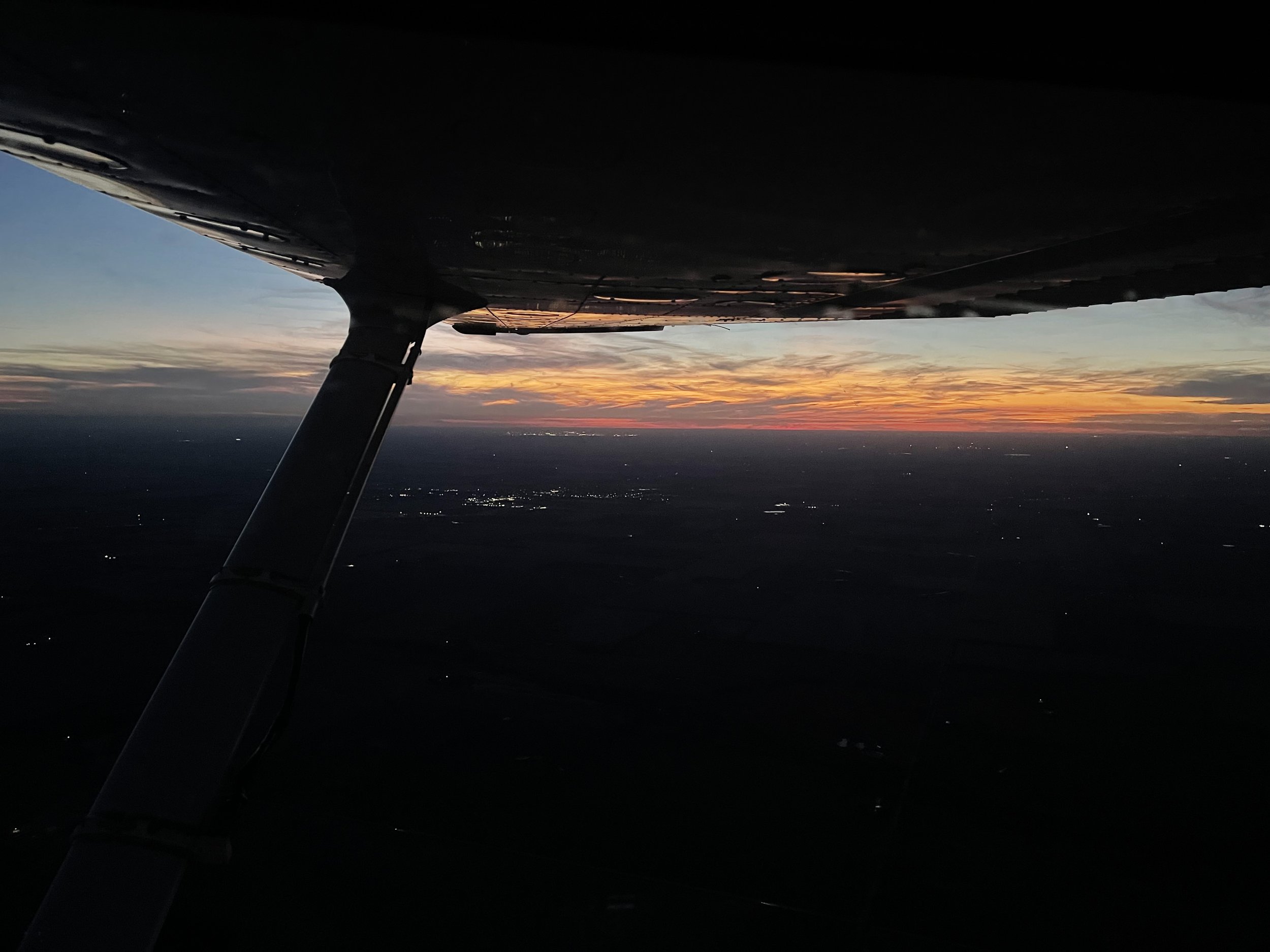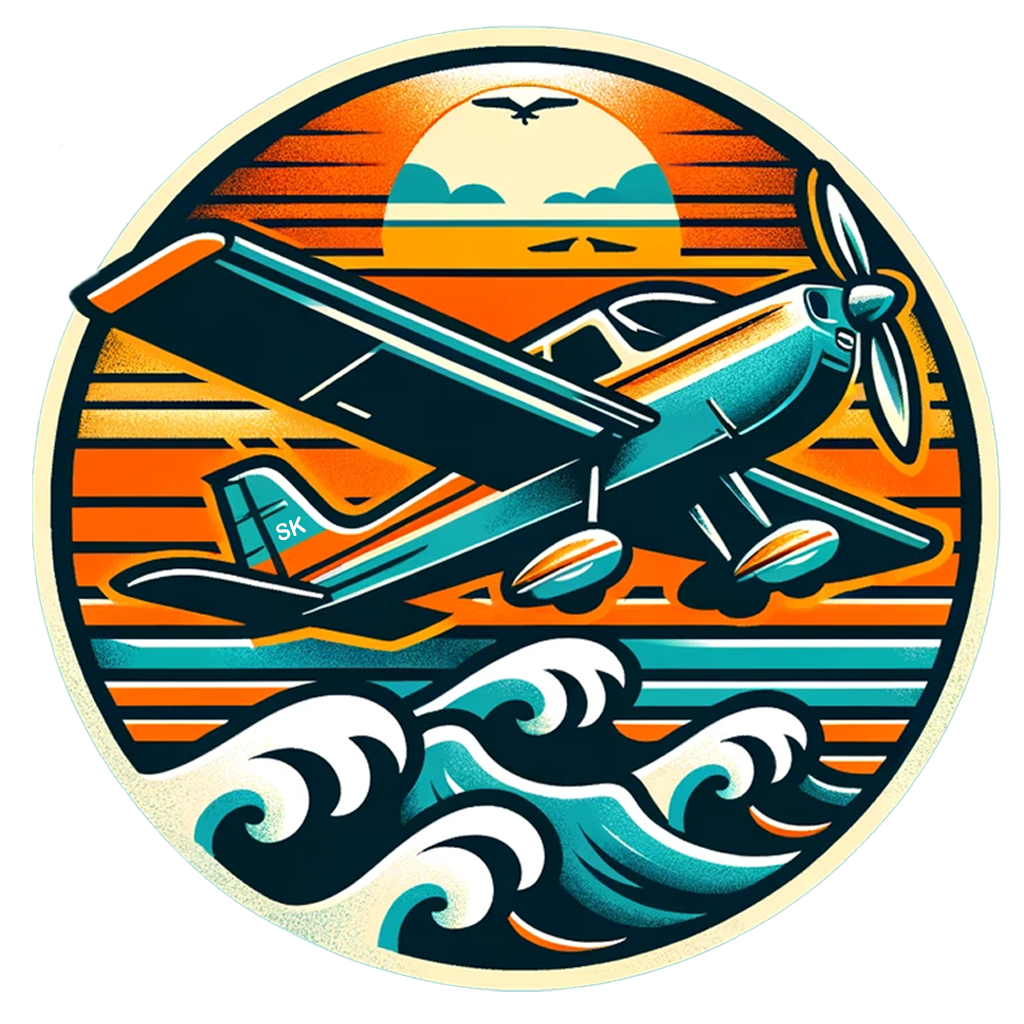
Commercial Pilot Training
Step by step
-
Why become a commercial pilot?
Becoming a commercial pilot opens the door to a dynamic and rewarding career in aviation. It allows you to transform your passion for flying into a profession, whether it's flying passengers, cargo, or specialized missions. As a commercial pilot, you’ll have the opportunity to explore the world from above, take on exciting challenges, and be part of an industry that values precision and skill.
In addition to career prospects, earning your commercial pilot certificate enhances your flying abilities, teaching you advanced maneuvers, aeronautical decision-making, and professionalism. The journey is a testament to your dedication and a significant milestone in any pilot's path.
-
Eligibility
The following requirements for a Commercial Pilot Certificate must be met:
- Must be at least able to read, write, and understand English.
- Must be at least 18 years old.
- Must be a U.S. Citizen (If not, you must complete the TSA’s Flight Training Security Program). -
Requirements
14 CFR Part 61 outlines the hour requirements to become a commercial pilot, which are as follows:
- 250 Hours Total Time
- 100 Hours PIC (50 XC PIC)
- 10 Hours Complex or TAA
- One Cross Coutnry at least 300NM total, 250NM one legAlthough the FAA lists these minimum requirements, some Commercial students may require more hours to compete their training. The length of training is dependent on a number of factors, such as:
Individual Progression: Each student progresses at their own rate, some require more practice and time with certain items. Flying more frequently can help students gain proficiency and reduce the total hours needed during flight training.
Financial Considerations: A higher frequency of lessons and consistent practice can lead to faster progress, however it requires a stronger financial commitment.
Study and Preparation: Diligent study of aviation subjects can enhance understanding and reduce the need for repeated lessons. Preparing for lessons ahead of time and “chair-flying” can also be a cost-effective way to practice procedures and reduce actual flight time needed.
Weather and Aircraft Availability: Poor weather can delay training and make it more difficult to fly frequently.
Personal Schedule: Students with flexible schedules may find it easier to complete training quickly, while those with a limited schedule may find it more difficult to dedicate time.Ultimately, the journey to earning your commercial pilot certificate is highly personalized. Your progress, financial situation, and dedication to studying and practicing will all influence the cost and duration of your training. Plan wisely, fly often, and enjoy the rewarding challenge of advancing your aviation career!
Students must also prepare for and pass the FAA Commercial Pilot Knowledge Exam. This step requires thorough study, an endorsement from a certified instructor, and a scheduled appointment at an approved testing center. Completing this process is a crucial milestone on the path to becoming a professional pilot.
-
Aircraft and Cost
SK Flight Instruction is based out of Schilling Aviation Services in Salina, KS. We use two of their aircraft, rented directly out to the students, for flight training. Both aircraft are great for training and provide great learning environments. The aircraft rates are fixed to include fuel and insurance.
Basic Cost Breakdown
Aircraft
$165/hour (1978 Piper Archer)
$160/hour (1972 Cessna Skyhawk)Instruction Rate
$60/hourCost Estimates
* Due to the varying experience of students, it is difficult to provide a cost estimate. The closer to 250 total flight hours, the cheaper commercial training should be. This is of course dependent on a number of factors, as listed to the left of this column.
Average Training (130 Hours)
Aircraft Rental Cost: 130 hours x $165/hour = $21,450
Instruction Cost: 40 hours x $50/hour = $2,000
Ground Training: 10 hours x $50/hour = $500
Additional Fees (Check-ride, knowledge exam, medical exam, study materials): $1000
Total Estimated Cost: $24,950Cancellation Policy
Students are expected to show up on-time and prepared for each flight lesson. Students are required to cancel their flight within 24 hours of the block time, if necessary. There will be a $50 no-show/late cancellation policy incurred for each hour of the scheduled training. Exceptions may be made on a base-by-base case.
